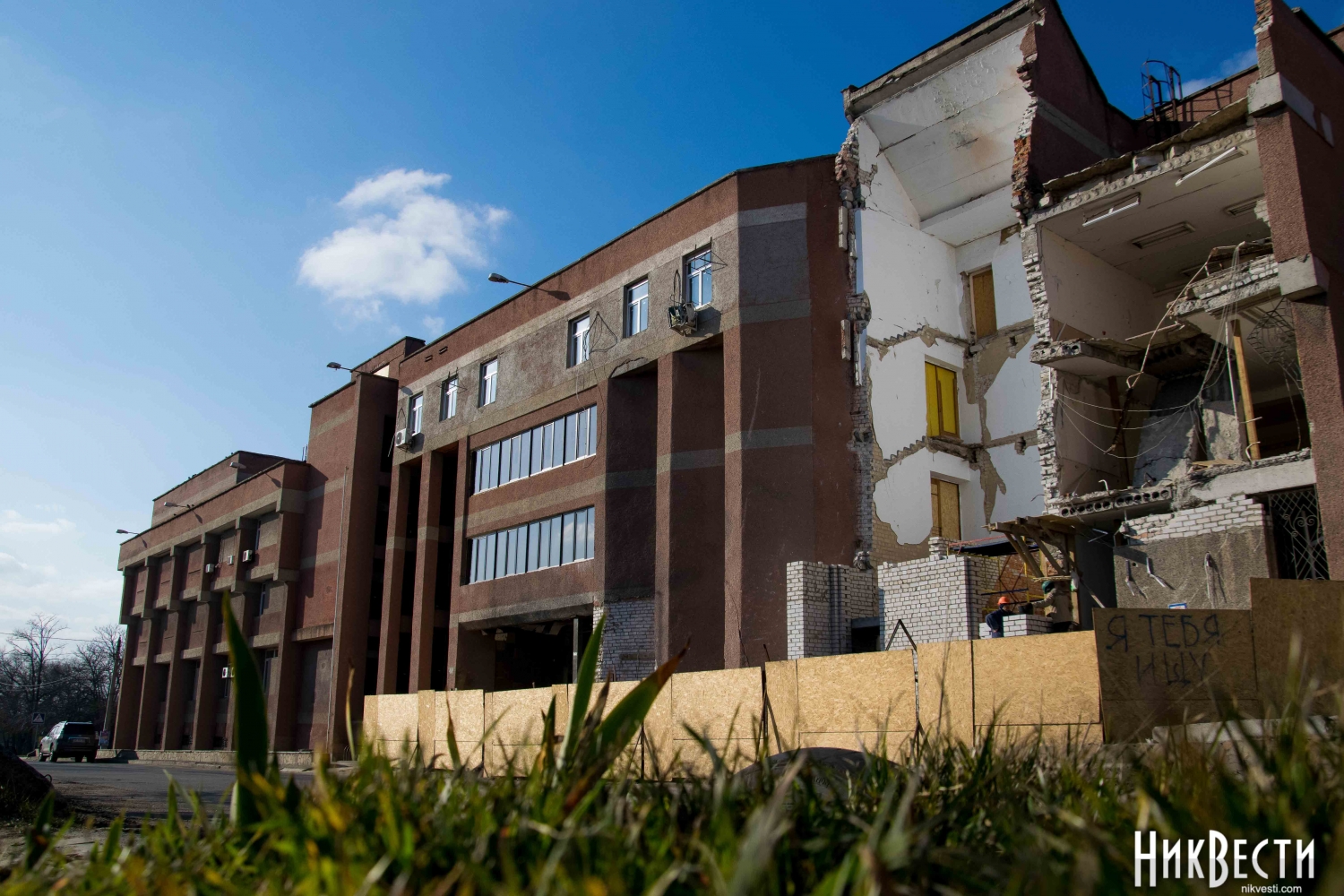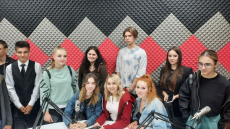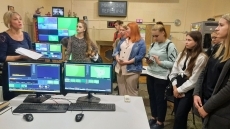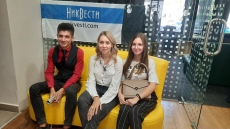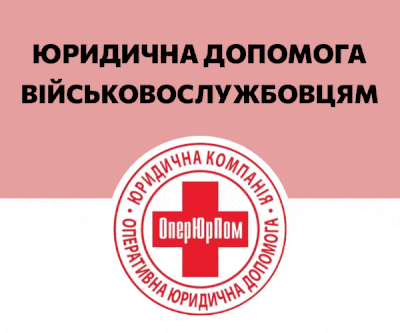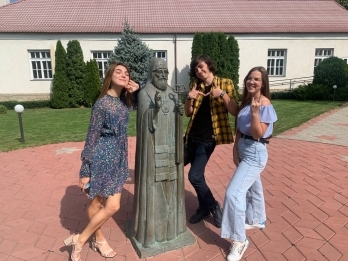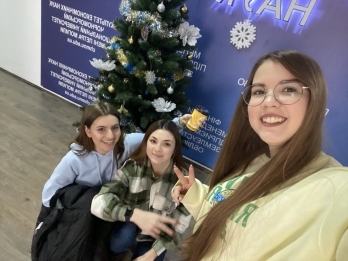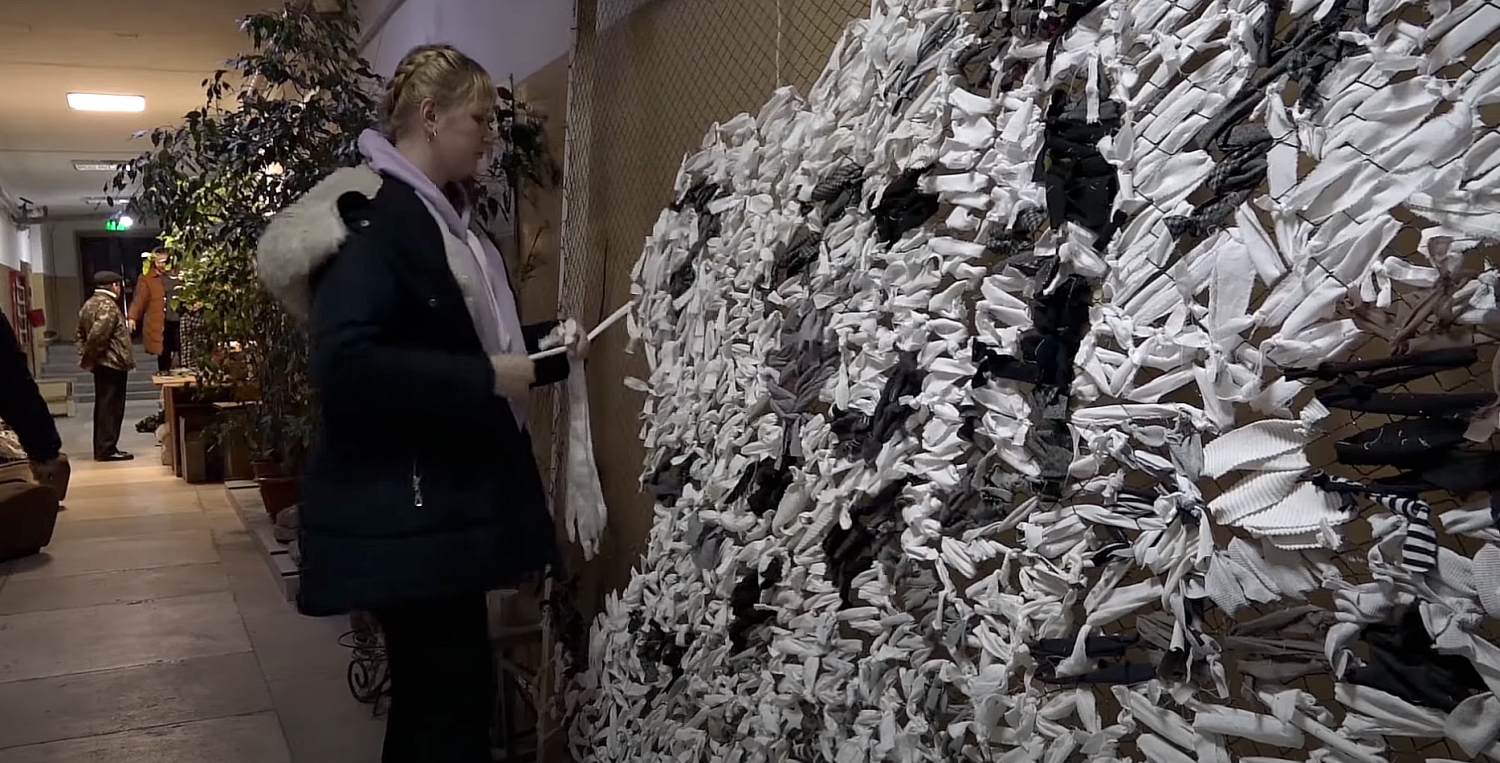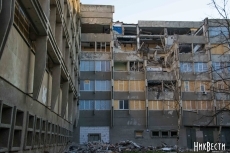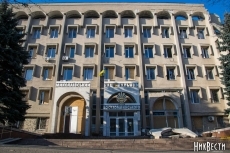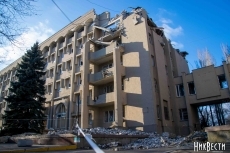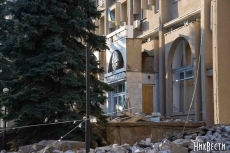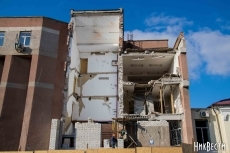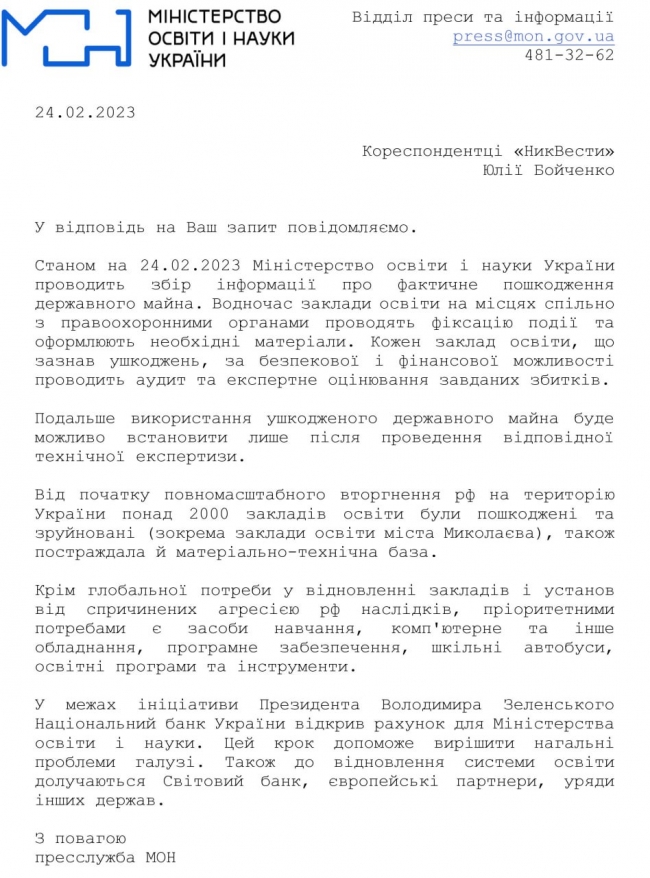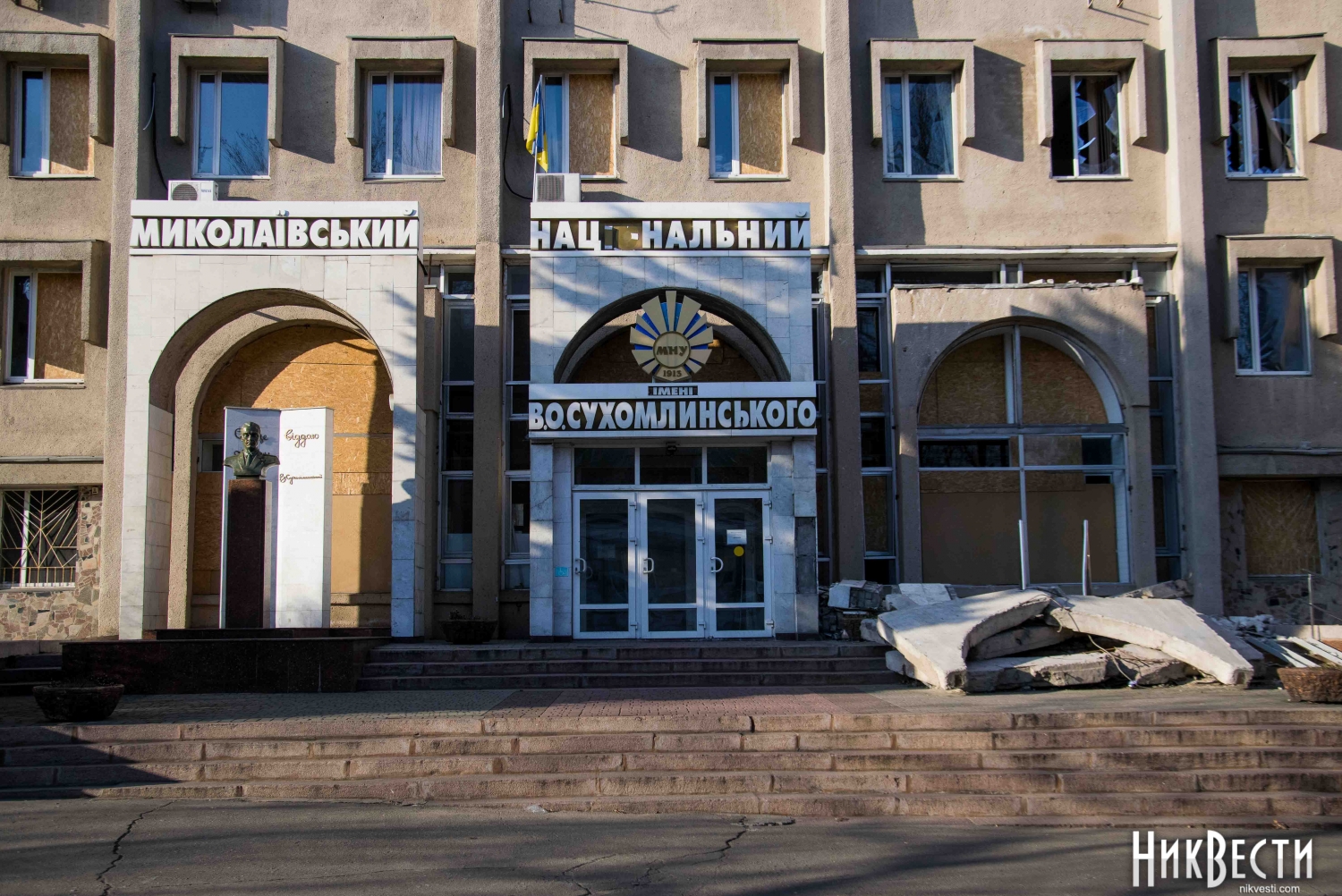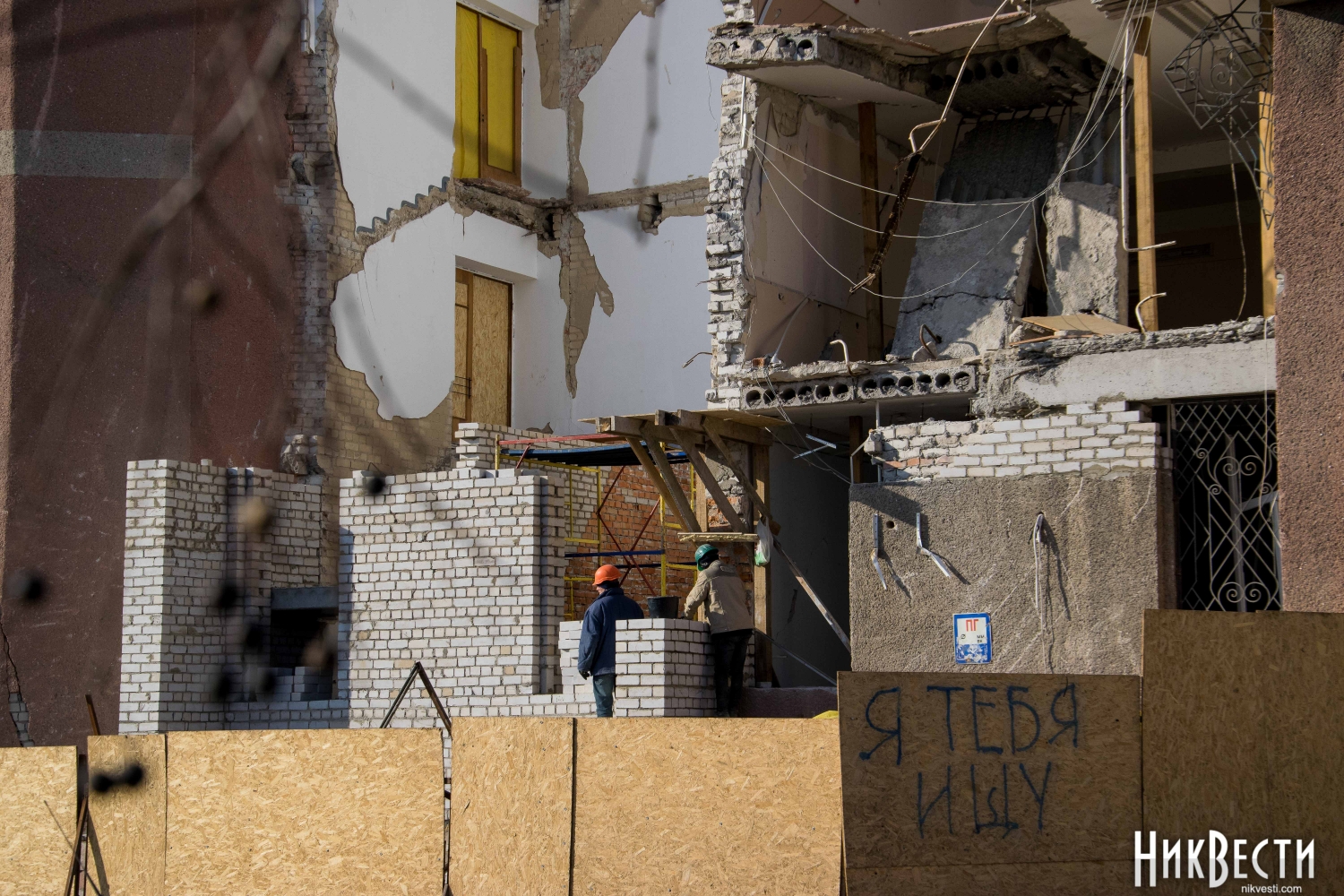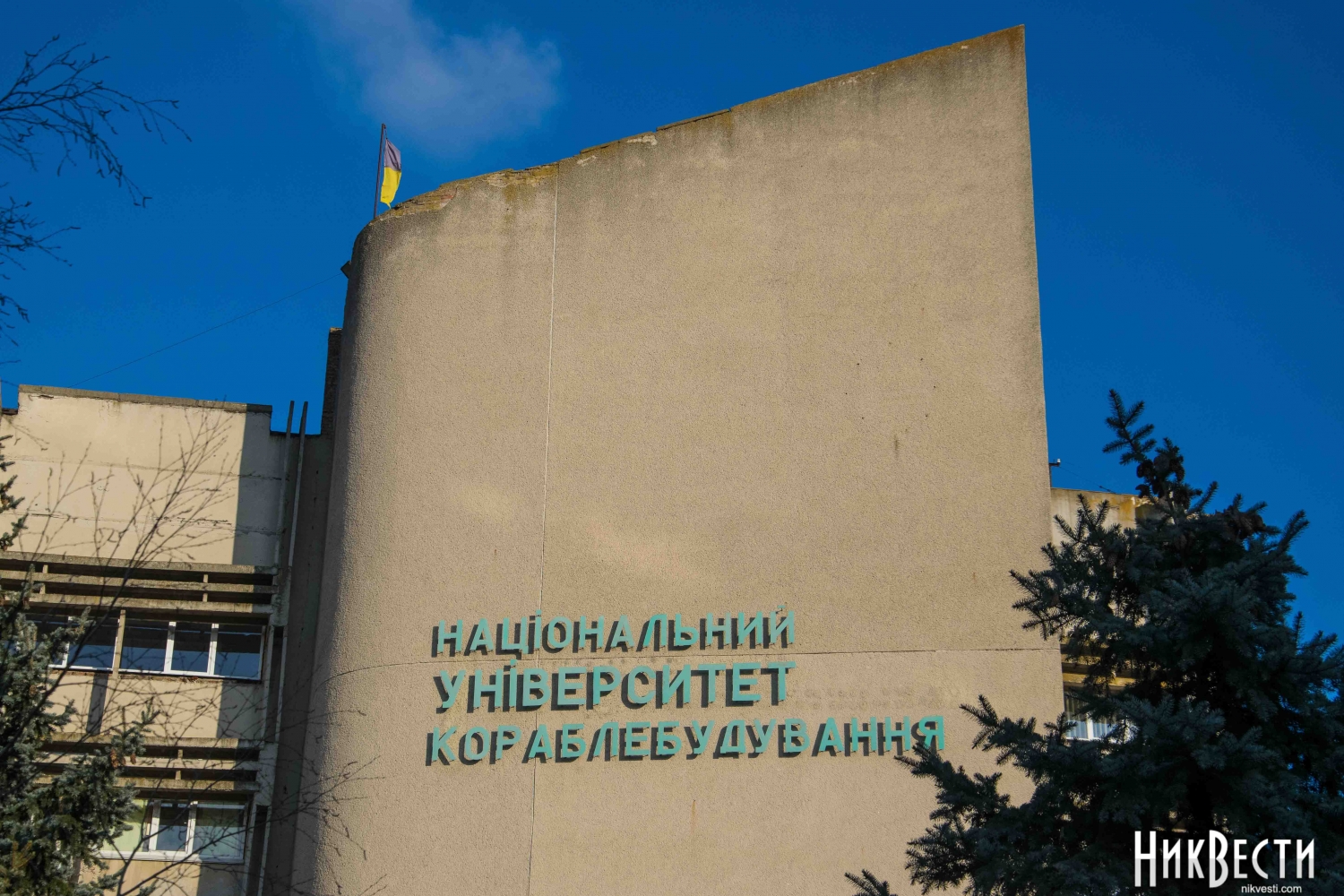«Stolen» studentship: How the war affected the life of Mykolaiv universities
- News of Mykolaiv
-
•
- Юлія Бойченко, НикВести
-
•
-
9:10, 15 March, 2023
After February 24, student life in Mykolaiv stopped. Some had to leave their homes and go to a safer place, some decided to stay at home and work on the volunteer front. There are also those who were and still are under Russian occupation.
Even under such conditions, students do not lose faith and are waiting to return to their studies in the walls of their native universities. However, it is currently unknown how soon this will happen. After all, three of the four largest universities in the city were destroyed. In the summer of 2022, Russian missiles hit the buildings of the University named after Petro Mohyla, University of Shipbuilding and Sukhomlynsky University. Only the agrarian was lucky to survive.
«NikVesti» found out what difficulties students and teachers faced during the year of the Great War, how Mykolaiv universities live today, and whether they will be able to return to their pre-war life.
Education despite the war. How students of Mykolaiv higher education institutions study today
The morning of Mykolaiv students today begins with a link to a zoom conference sent to them by their teacher. They have been studying online for a year and see their classmates and teachers only through a laptop screen. However, students managed to adapt even to such conditions.
To a certain extent, young people were prepared for this, because they had the experience of distance learning during the coronavirus pandemic, says Yuliia Holokoz, a third-year student of the specialty «Journalism, advertising and public relations» of the Admiral Makarov National Technical University.
«My third year is made up of students who entered higher education during the Covid-19 pandemic and continue to study now during the war. We only went to university for a short time, but those times were very busy. We had time to go through a lot of practice and see a lot of editorials. Now I want the war to finally end and we have the opportunity to go out and learn offline at least a little: to chat with teachers in the classroom, to feel emotions that cannot be conveyed online», — the girl says.
However, despite the adaptability of students to the distance learning format, it still has its drawbacks, assures Iryna Habro, a teacher at the Department of International Relations and Foreign Policy of the Petro Mohyla National University of Ukraine. For example, the lack of live communication and conducting discussions negatively affects the ability of humanities students to prove their point of view and increase their vocabulary.
At the same time, students do not always have the opportunity to attend lectures and seminars online due to blackouts that occur due to massive Russian attacks on Ukraine. This situation became especially critical with the beginning of the winter period. At that time, there was no electricity almost every day, students were left without communication and the opportunity to join zoom conferences.
But to a large extent, everything depends on the students' desire to learn, says teacher Iryna Habro. For example, one of the most motivated, she says, is a girl who is currently in the territory temporarily occupied by Russia.
«A person in occupation has a greater desire to acquire knowledge than some in safe places. She goes online at every opportunity and performs absolutely all tasks. This should be supported», — says the teacher.
In addition, teachers try to organize students' studies in such a way that even the absence of light does not have a significant impact. Yes, for students of Petro Mohyla Black Sea National University organized two online training formats, continues Iryna Habro.
«Our training is not exclusively via Zoom — it's called synchrony. We also use asynchronous methods: we give students assignments on the Moodle platform and they complete them. But it is difficult for students, because there was a pandemic, and now there is a war. Some of them do not know normal study within the walls of the university at all. And it's already scary, because it's already the third year. We actually lose the possibility of live communication», — says the teacher.
Alina Zarichna, a second-year student majoring in «International Relations» at Petro Mohyla National University, also speaks about the importance of offline learning. The girl remembers that before the Great War, studying in the first year was exciting and is already looking forward to returning to higher education.
«It was very cool, especially when you are a first-year student — everything is interesting and new for you. In fact, I already want to go to the university as soon as possible, study in classrooms. Now it seems that you study, live and communicate with your peers, but you cannot live to the fullest. Some are under occupation, some are being killed — all this affects the psychological state. But I try not to be sad, find something positive and dream of the best» — says the student.
However, even during the war, the girl says, the university provides students with other opportunities for development. These are, in particular, internships abroad and online lectures by foreign teachers.
«I personally took part in the diplomatic school of Ukraine during the war. It cooperates with other universities. For example, soon we will have a conference with students from Uganda. We also had lectures by teachers from US universities. In general, we have a group for students of all courses, all faculties. There, they constantly send us links to online courses, offers for internships abroad», — says student Alina Zarichna.
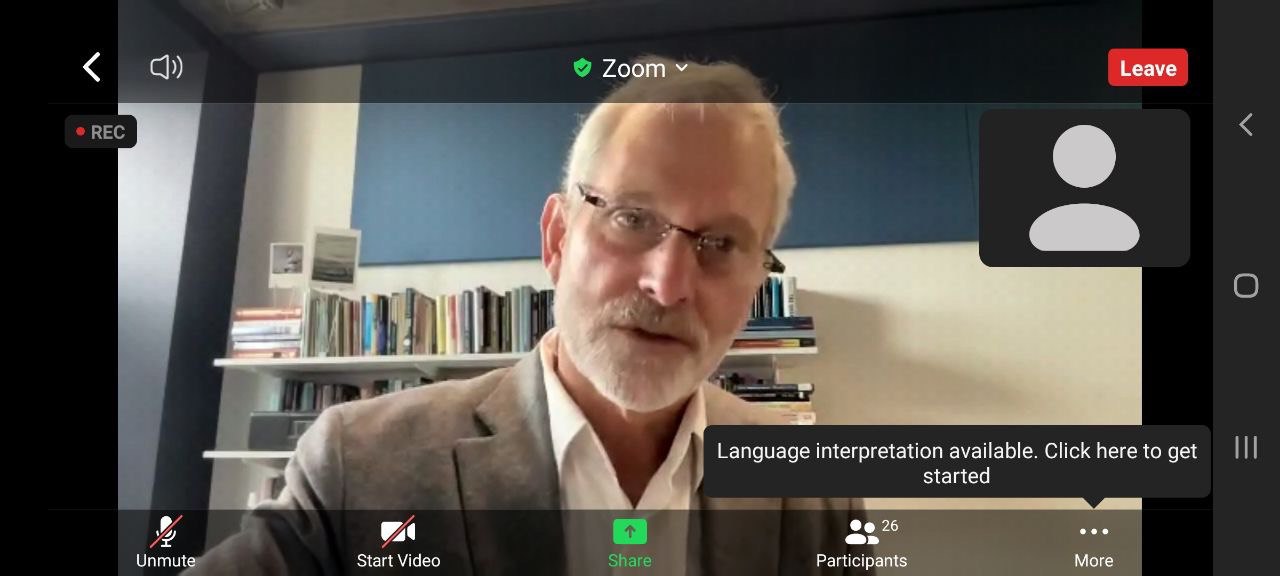
In addition to lectures by foreign teachers, international students also have online meetings with diplomats, ambassadors and employees of various departments, says Iryna Habro. Some among the students, the teacher says, are quite actively involved in international internships and have managed to visit several countries of the world in a year.
«I have a student who studied in Georgia in the first semester. And now we signed an agreement with a British university, and she went there for a semester of study. Now there are many more programs, including European ones. They offer both training and semester internships or internships for a month. This is a face-to-face format and our students go», — shared Iryna Gabro.
The Admiral Makarov National University of Shipbuilding also provides its students with opportunities for development during the war, says student Yulia. Young people take part in all-Ukrainian and international competitions, where university students win prizes.
Despite their studies, students of all three universities also find time for volunteering. Regardless of whether they are abroad, in Mykolaiv or other cities — «everyone is involved», — shares Yuliya Holokoz. She says that some of the students of the Shipbuilding University work in volunteer organizations, in particular the Red Cross, while others help in every possible way: they donate blood, collect funds for ammunition for the military, support Ukraine at rallies abroad, weave camouflage nets, make trench candles and donate.
For example, students of the Pedagogical University help children from the city of Ochakiv, Mykolaiv Oblast, which suffers daily from Russian shelling, says Anastasia, head of the university's student council.
«The university is not walls, but people. Students gather in different groups and help our military, help children from Ochakiv (a city in the Mykolaiv region, which is under daily shelling by the Russian military — note)», — says Anastasia.
Such activity of students is connected with the fact that after February 24, their perception of the world also changed, assures teacher Iryna Habro. She adds that she is lucky, because all her students are quite aware of the issue of a full-scale invasion of the Russian Federation.
«Of course, the perception of the enemy has changed. I'm lucky — I don't have students who still need to be convinced of something. Everyone perfectly understands what is for what. Another point that I personally cannot say that does not please me. This is because the students do not believe that the war started because of the Russian-speaking population, that this is the only factor. Because there are different opinions, even among colleagues. Not among our university, I saw it there in various groups of higher education. Usually, these are representatives of the western regions. Of course, the language is the main thing, but no one sees it as the main reason», — says Iryna Habro.
One of the main tasks of teachers today is to support the morale of students and their interest in learning, Iryna Habro is sure. And especially those who currently remain in the territory temporarily occupied by Russia.
«The main task is to support students, especially those who, for example, are under occupation. It is very difficult to understand how it is there, but it is necessary to support and give such students the opportunity to finish their studies. This is the main task of teachers today. It is also necessary to maintain their interest in learning so that it does not decrease. Studying is also a kind of diversion where you can take your mind off the news, problems and thoughts of the war. But, of course, they try to translate any theoretical point into war», — she says.
At the same time, we should not forget about the moral condition of teachers, emphasizes Iryna Habro. After all, it is «also, to put it mildly, far from ideal», since many of them have husbands, fathers and relatives who are also at the front.
An attempt to kill Ukrainian education: Russia destroyed the buildings of the three largest universities in Mykolaiv
The first universities to be destroyed by the Russian missile attack were the largest in the city, the National University of Shipbuilding named after Admiral Makarov and the Mykolaiv National University named after Vasyl Sukhomlynskyi. Enemy S-300 missiles hit their main buildings in the morning of July 15, 2022: five missiles hit the Shipbuilding University and four hit the Pedagogical University. It immediately became clear that it would not be possible to restore the building before the start of the new academic year. It will take a lot of time to conduct an examination of the condition of the destroyed buildings, the head of Mykolayiv RMA Vitalii Kim reported.
At the same time, the Rector of the Shipbuilding University Yevhen Trushliakov assured that the university will still work from the beginning of the new academic year. Of course, there was no question of visiting the university — considering the destruction caused and the danger of staying in Mykolaiv due to daily shelling. However, the students were assured that the study will continue remotely.
President Volodymyr Zelenskyy also commented on the shelling. He assured that Ukraine will definitely restore the institutions destroyed by Russia.
«There are no such words in normal human language that can describe the state to which the Russian state has degraded. It is a double crime — to destroy pedagogical institutes so that there is no educational institution and new educators cannot be trained», —Volodymyr Zelenskyy said in his video message at the time.
In two weeks, on August 2, 2022, Russia struck again at the Pedagogical University. This time, a Russian rocket hit a dormitory located next to the main building of the university. The building was seriously damaged: the roof and walls collapsed there. The management of the higher education institution also decided to conduct an examination on the possibility of further use of the dormitory.
The last Russians shelled the Black Sea National University named after Petro Mohyla. The enemy tried twice to destroy Mykolaiv High School — on August 17 and 19, 2022.
On the eve of the missile attack on the university, the Ministry of Defense of the Russian Federation announced that units of the Ukrainian Armed Forces were allegedly located there, warehouses with ammunition were equipped and armored vehicles were placed there. However, the journalists showed that there is no military base on the territory of the higher education institution: there were only university employees who accepted applicants' documents, signed cover letters and issued diplomas.
On the night of August 17, Russia launched two rockets at the university. One of them pierced the facade of the main building next to the central entrance — a hole was formed in the wall of the building. The second rocket hit the territory of the institution. Then the mayor of the city, Oleksandr Sienkevych, said that the Russians are «real terrorists who hide behind their propaganda and continue to cynically destroy our educational institutions.» In two days, two Russian S-300 missiles hit the main building of the university again.
After that, the university management announced a collection for the reconstruction of destroyed and damaged buildings. The rector of the university, Leonid Klymenko, addressed the graduates, partners, patrons and interested citizens with a corresponding request.
Taking into account the extent of the destruction, the mayor Oleksandr Sienkevych expressed fears that after the end of the war, young people may not return to Mykolaiv. He claimed that this was «the worst thing that could happen to the city».
However, it will be possible to return the students with the prospects of their development, Oleksandr Sienkevych claims in a comment to «NikVesti»: «This means that we must provide them with the opportunity to study, spend their free time interestingly and usefully, and also gain their first work experience».
The city authorities consider it fundamentally important that not only schools and kindergartens, but also universities start working offline as early as September. However, the mayor says, there is currently no understanding of the exact timing of the opening of Mykolaiv universities for offline education.
At the same time, the issue of restoration of Mykolaiv universities is more understandable today. Currently, the city authorities are conducting relevant negotiations with international partners, says Oleksandr Sienkevych.
«During my last conversation with US politicians, we just talked about the restoration of universities in Mykolaiv and the involvement of American educational managers in changing the programs at the universities of our city. That is, it is possible and we will do it», — Oleksandr Sienkevych assures.
Prospects for the restoration of the destroyed buildings of Mykolaiv universities
The Ministry of Education and Science of Ukraine is also working on the issue of rebuilding universities. Currently, the department is collecting information about the damaged buildings of higher education institutions, the ministry reported in response to the information request of «NikVesti».
However, whether the destroyed buildings are subject to restoration and how much money is required for their reconstruction remains unknown at the moment, because for this it is first necessary to carry out a technical examination and obtain appropriate results. At the same time, the ministry notes that Mykolaiv universities are already working on conducting an audit and expert assessment of the damage caused by Russia.
The destroyed buildings of the pedagogical university are planned to be restored after the end of the Great War, Minister of Education and Science Serhii Shkarlet said in a conversation with the rector of the higher education institution Valerii Budak.
«Serghii Skarlet asked us: do now what is connected with the dismantling (dismantling of the rubble, — note), and the restoration should be done when the war ends and the reconstruction of the state begins», — Valerii Budak told the story of the MART TV channel.
Dismantling work at the university has not yet started, but the university has already officially applied for the appropriate permission to the Ministry of Education. After that, they expect to receive design and estimate documentation for the restoration of the destroyed buildings there, clarifies the vice-rector of the higher education institution Victoriia Danylenko.
Meanwhile, at Black Sea National University named after Petro Mohyla has already completed the dismantling work and even started restoration. Of course, it is still too early to talk about the complete reconstruction of the destroyed buildings, but they are already trying to do something on their own.
So far, the university has repaired the roof, restored the heating system, drilled a well and installed submersible pumps, Rector Leonid Klymenko said on the air of the MART story. The expert assessment of damage to the first and second buildings, he notes, amounts to 25.5 million hryvnias. At the same time, they decided not to assess the damage to the fourth and fifth buildings in the tower, since the damage caused there belongs to ongoing repairs.
As for the Shipbuilding University, it is not yet possible to calculate all the damage caused, said Hennadii Pavlov, vice-rector for scientific work. A special commission will deal with this.
At the same time, a working group has already been created that will deal with issues of recovery of the Mykolaiv region. It was headed by the deputy head of the RMA, Valentyn Haydarzhi, and the rectors of the Mykolaiv higher education institutions were included in the composition: the rector of Black Sea National University named after Petro Mohyla Leonid Klymenko, rector of the National University of Ship Building named after of Admiral Makarov Yevhen Trusliakov and rector of Sykhomlynsky National University Viacheslav Shebanin.
Despite Russia's attempts to destroy Ukrainian education, Mykolaiv students continue their studies with even greater zeal. Neither the destroyed buildings of higher education institutions, nor online education, nor blackouts, nor even the Russian occupation became an obstacle to this.
While the students are working on the educational front, the management of universities, Mykolaiv authorities and the Ministry of Education are already working on the issue of restoring the destroyed universities. Of course, there is no question of a complete reconstruction of the universities before the end of the great war. However, work is already underway to assess the damage and involve international partners in the process of restoring universities. It is these developments that will help to restore educational institutions as soon as possible after the victory of Ukraine.
Yuliia Boшchenko, NikVesti
Photo: Serhii Ovcharyshyn


